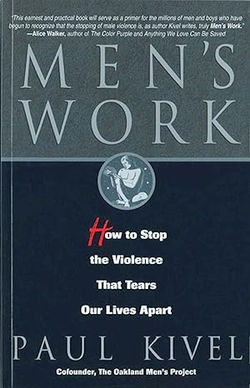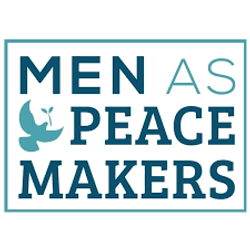
MALE ALLIES
.png)
Have you seen our campaign messages?

Our campaign, What It Means To Be a Káa (Man), spotlights previous Boys Run I toowú klatseen (BRITK) coaches that are positive male mentors who role-model alternative, more holistic ways of being a man. The BRITK program, meant for 3rd through 5th grade boys, teaches participants that being a "strong" man means having strength of spirit (I toowú klatseen). This place-based curriculum relies on male coaches who model their masculinity authentically for a healthier generation of men and boys.
These messages, which you will find on this webpage, on social media, in newspapers, on the radio, at the movies, in coffee shops and at restaurants, work to counter the harmful ones that boys are getting about masculinity. It gives them a different narrative about how they can show up in the world as boys, and eventually men.
To learn more about BRITK and its importance, hear from the coaches below.
To Hear more from the coaches, keep scrolling!
Gunalchéesh Chuck Miller, Daanax.ils’eik
This campaign is dedicated to Chuck Miller, Daanax.ils’eik, who played a key role in the development of both this media campaign as well as the BRITK program. As a mentor, storyteller, and cultural knowledge bearer, he truly embodied his life motto, Kaa yáa awooné — showing respect for everyone and everything.
We are incredibly grateful to have worked so closely with Chuck for so many years and are honored to continue sharing his messages with generations to come.

The messages we get about manhood



Did you know that men and boys are at greater risk of death at EVERY stage of life as compared to women and girls? This is largely due to the pressure on men and boys to conform to unrealistic standards of what it means to “be a man”. From the day they are born, those who are biologically male are told and shown how they should navigate life from childhood to death. These messages come from everywhere (e.g., media, family, friends), all of the time. So what exactly are these unrealistic standards about manhood? Watch the video below to learn more.

REFLECTION Questions
-
What messages were you told growing up about how to be a boy?
-
How did those messages shift how you acted, felt, dressed, thought?
Why Messages matter
So why does it matter that boys and men are receiving these messages? Well, research shows that these unrealistic expectations about manhood can have harmful consequences for those who subscribe to them, as well as those they interact with. For instance, a man who internalizes these expectations around manhood is more likely to be depressed, commit suicide, commit acts of violence against others, (e.g., sexual, domestic, bullying), and partake in risk-taking behaviors, etc.
.png)
As boys grow into men who subscribe to these unhealthy standards, they begin to show and tell the next generations that this is what it means to be a "real man.” This creates a cycle of future generations of boys and men who are at higher risk for unhealthy behaviors (e.g., violence, substance use issues). This is why we need positive male mentors who can help redefine manhood, building up future generations of healthy and happy men and boys! Check out the video below to learn more about these unrealistic standards and their effects!
REFLECTION Questions
-
What did you do when the messages you received did not align with your actual self? Did you conform?
-
How did it feel to do that?
Showing up for the next generation

Boys will be what they see, which means that they are looking to the men in their lives to understand how to proceed. Will you show them that while boys and men are taught that anger, violence, and domination are socially acceptable ways to be a man, there is an alternative path? That it is men's responsibility to role model a healthier, more authentic version of masculinity, one that allows boys to express their emotions, be vulnerable, and embrace the full spectrum of being human?
REFLECTION Questions
-
What does your masculinity look like? What values are important to you?
-
How will you work to be your more authentic self?
It is important to remember that there will be mistakes made; this is an ever-evolving learning journey. It is not easy to unlearn these standards around manhood and to move forward in a healthier way. This is especially true when there are so many people who do not see the harm these messages can cause.
On way to ensure you are moving forward in a better way is to hold yourself accountable for mistakes you make and show the boys in your life and your peers that it is okay to slip up for the sake of growing into a more authentic you. Here are a few ways to hold yourself accountable:
-
Take Ownership: accept responsibility for your actions and their consequences, both positive and negative, without blaming external forces.
-
Be honest with yourself: Acknowledge your mistakes and shortcomings
-
Learn from mistakes: Instead of making excuses, reflect on what happened and what you can do differently next time. Make a plan to fix problems you've created.
-
Accept feedback: Be open to constructive criticism and see it as an opportunity for growth rather than a personal attack.
-
Fix what you break: If you make a mistake, apologize sincerely and take action to fix the problem or make amends
-
Fulfill your obligations: Follow through on your commitments without excuses.
-
Build a support system: Talk to trusted friends, mentors, or a therapist to get perspective and practice accountability in a healthy way.
"There is not a role of man or masculine to be filled, it is just being a good person."
-Cyrus Unvala
REFLECTION Questions
-
How will you role model your masculinity for others, peers and young boys alike?
-
How will you embrace others' masculinity?
Learning more and getting involved
Looking for a specific type of resource that you don't see above or want to learn how to get more involved, fill in the form below and we will get back to you in the following few days!







































